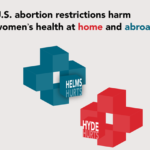Two major women’s health organizations, Susan G. Komen for the Cure and Planned Parenthood, battled for women’s respect and donations. Two days later the dust is settling and we’re left to wonder what we should take away from the tangle? Was it about fundraising? Women’s health? Politics? I suggest it is about stigma, specifically abortion stigma that has been deliberately attached to a beloved national institution and household name, Planned Parenthood.
The primary study aim was to describe patient satisfaction regarding abortion experiences in urban academic family medicine centers (FMCs). We conducted a cross-sectional survey of 210 women obtaining a first trimester medication or aspiration abortion at four FMCs. The majority of women (93%) were very satisfied with their abortion experience in their FMC, regardless of clinical site or abortion method. Women most commonly cited positive interactions with the staff and physicians as the best part of their experience. This study demonstrates that women who receive abortion services at academic FMCs are highly satisfied with their care.
Certainly, sharing abortion stories can be a powerful act and may reduce self-stigma. But I fear that it distracts from the structural inequalities of race, poverty, age, and education by placing too much emphasis on the individual. And I worry that it lets our politicians and policymakers off the hook.
Both Wubalem and Chaltu live only five kilometers from the nearest public health clinic. Under Ethiopian law, both have the right to safe, legal abortion. Yet, because of unnecessarily broad interpretation of U.S. government policy, one was denied this fundamental right.

The Hyde and Helms Amendments restrict federal funding for legal abortion care here and abroad and unfairly penalize women for being poor. This is a fact sheet comparing these U.S. policies on abortion.

- 1
- 2

